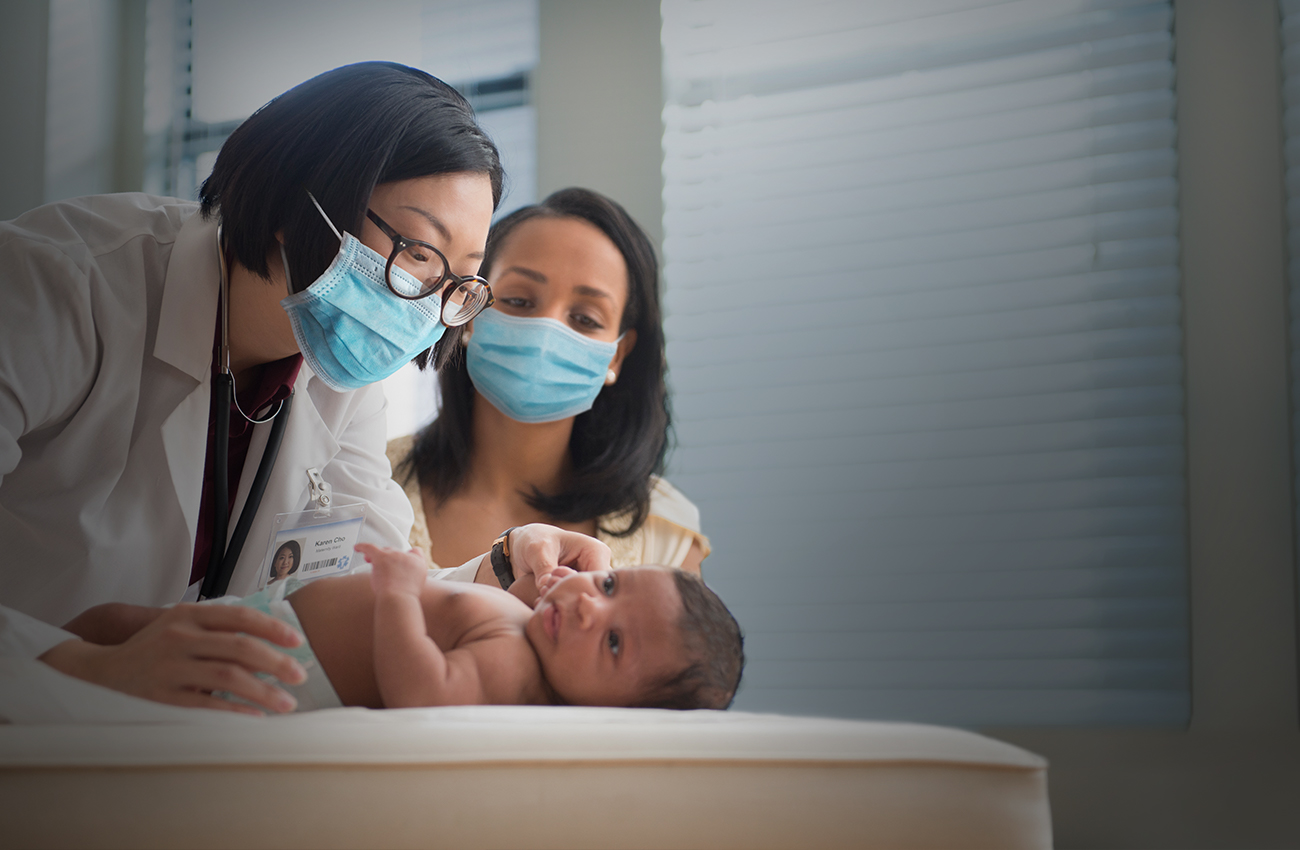Protecting Your Babies and Toddlers from COVID-19
Nemours shares tips for how parents can protect their babies and toddlers in this uncertain landscape.

As the coronavirus (COVID-19) pandemic continues, we’ve learned more about the virus and how to protect ourselves from it. Key steps include getting a vaccine when you can, social distancing, washing hands, and wearing a mask in public.
With communities reopening, getting a COVID-19 vaccine and wearing masks in public is even more important. But kids must be over age 2 to wear masks, and COVID-19 vaccines are only approved for people over age 16. So parents might wonder how they can protect their babies and toddlers.
Why Should People Wear Masks?
Coronavirus can spread when people breathe, talk, cough, or sneeze. When someone wears a mask, it keeps the virus from reaching other people. Wearing a mask can also stop the virus from reaching you.
Why Shouldn’t a Baby or Toddler Wear a Mask?
Babies and toddlers under 2 years old shouldn’t wear a mask because they have smaller airways, so breathing through a mask is harder for them. If it’s hard for them to breathe and they can’t tell anyone or take the mask off by themselves, they could suffocate.
Can Babies and Toddlers Get Infected With the Coronavirus?
While most COVID-19 infections have been diagnosed in adults, kids can get infected. In children, the virus sometimes causes a mild illness, and often causes no symptoms at all. But some babies and children have gotten very sick from the virus, sometimes weeks after becoming infected.
How Can I Protect My Baby or Toddler From Coronavirus Infection?
You can protect your little one by avoiding large crowds and keeping a safe distance (at least 6 feet) from other people when out of the house. You should also:
- Avoid people who are sick.
- Wash your hands well and often, and teach others in your home to do the same.
- Clean surfaces and objects that people touch a lot.
- Sneeze or cough into a tissue or your elbow.
- Wear a mask at home if you are sick. Limit contact with your child until your symptoms have stopped.
If you take your child out in an infant carrier, you can place a blanket over the carrier while it’s within your view. Make sure the blanket doesn’t touch the baby. Wipe down the carrier or stroller when you get home.
Can I Take My Child to the Doctor’s Office for Vaccines and Other Care?
Yes. Doctors’ offices are taking steps to keep patients safe and it’s important to stay in touch with your child’s doctor about vaccines and well visits. Keeping your child’s vaccines up to date is a key way to keep your child healthy.
When will the COVID-19 Vaccine Be Available for Children?
Clinical trials are taking place now to help us learn more about how the COVID-19 vaccines work for children of different ages. A vaccine may be available for children as young as 12 in the next several months, with a full pediatric vaccine available in late 2021 or early 2022.
Nemours supports the Main Line Parent Community.





